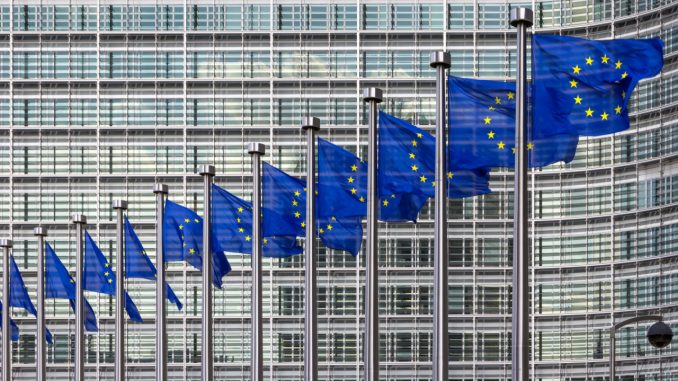
Authorities in Brussels are taking steps to reduce power consumption, including in cryptocurrency mining, as the EU faces limited energy supplies from Russia, the reliance on which it has been trying to lower. New energy efficiency labeling is to address the growing electricity usage in the crypto sector.
EU to Develop Energy Efficiency Label for Data Centers Amid Increasing Consumption in Mining
The European Union plans to introduce a label for energy efficiency in efforts to counter the growing electricity consumption in data centers such as those mining cryptocurrencies. According to Bloomberg, the EU will also urge member states to target crypto miners’ energy usage as it seeks to navigate the winter with far less Russian gas and other energy than before the sanctions imposed over the war in Ukraine.
Quoting a draft proposal, the report revealed that the EU’s executive arm wants to work with international partners to adopt a grading measure that will encourage more environmentally friendly crypto systems, such as the proof-of-stake (PoS) protocol as opposed to the energy-intensive proof-of-work (PoW) mechanism employed by Bitcoin.
“Just as their use has grown significantly, the energy consumption of cryptocurrencies has more,” the European Commission notes in an Action Plan. “In harnessing the use of cryptocurrencies and other blockchain technologies in energy markets and trading, care must be taken to use only the most energy efficient versions of the technology,” the Commission emphasizes.
Controlling the energy consumption of the Information and Communications Technology (ICT) sector, including through an “environmental labelling scheme for data centers… and an energy efficiency label for blockchains,” is one of the key measures envisaged in the document announced on Tuesday. In a press release, the Commission explained:
With data centers and the growing appetite for online services demanding ever more resources from our energy system, today’s plan also outlines ways to decouple the energy footprint of the ICT sector from the exponential growth of data.
The move comes after an earlier attempt to prohibit PoW mining through the upcoming Markets in Crypto Assets (MiCA) regulatory framework, which sparked negative reactions from the Old Continent’s crypto community and industry as it amounted to a Bitcoin ban.
The controversial provision was eventually dropped from the latest draft of the legislation but other texts oblige service asset providers to disclose the energy consumption and environmental impact of the assets they work with.
PoS mining, to which the Ethereum blockchain recently migrated, uses much less energy than the proof-of-work minting of digital coins. Although the EU accounts for only around 10% of the PoW crypto mining, any new policies introduced by the 27-strong bloc in this field can potentially have global effects, Bloomberg pointed out.
The cited document also unveils that the European Union is going to produce a report evaluating the climate impact of the industry by 2025 and call on EU countries to end any tax breaks for cryptocurrency miners. Brussels also insists that member states should be ready to halt mining activities in case of electricity shortages.
What’s your opinion about the EU’s attempts to reduce energy consumption in the crypto mining sector? Tell us in the comments section below.
Image Credits: Shutterstock, Pixabay, Wiki Commons
Disclaimer: This article is for informational purposes only. It is not a direct offer or solicitation of an offer to buy or sell, or a recommendation or endorsement of any products, services, or companies. Bitcoin.com does not provide investment, tax, legal, or accounting advice. Neither the company nor the author is responsible, directly or indirectly, for any damage or loss caused or alleged to be caused by or in connection with the use of or reliance on any content, goods or services mentioned in this article.






Be the first to comment